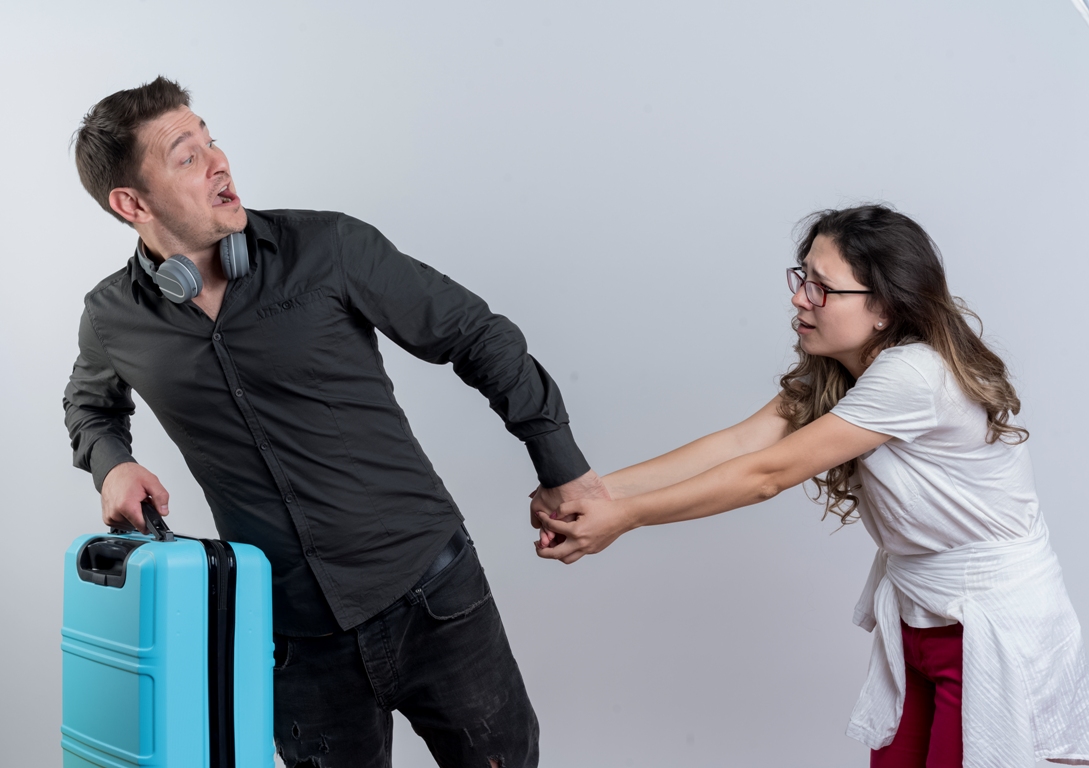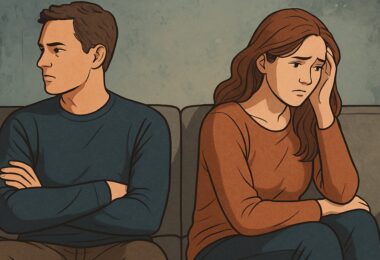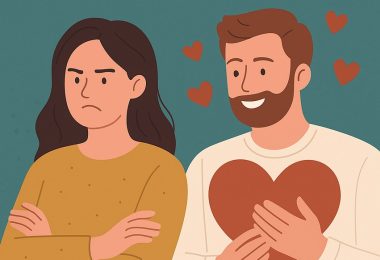Being in an abusive relationship can be extremely challenging, not only because of the direct harm it causes but also due to the complex emotional and psychological effects. If you’re wondering how to fix an abusive relationship, it’s crucial to understand the types of abuse, the steps to address it, and when it might be necessary to leave. This guide will help you navigate this difficult journey with practical advice and support options.
Table of Contents
- Understanding Abusive Relationships
- Identifying the Type of Abuse
- Impact of Abuse on Mental Health and Well-being
- Recognizing and Acknowledging the Abuse
- How to Fix an Abusive Relationship: Key Steps
Key Takeaways
- Understand the different types of abuse and how they manifest in relationships.
- Recognize the profound impact of abuse on mental health and well-being.
- Learn practical steps to address and potentially fix an abusive relationship.
- Consider professional help, setting boundaries, and safety planning as critical actions.
Understanding Abusive Relationships
Abusive relationships are not always easy to identify, especially when the abuse is emotional or psychological. Abuse can manifest in many forms, including physical, emotional, verbal, financial, and even digital. Recognizing these signs early on is key to addressing the problem and finding a path forward, whether that involves fixing the relationship or making the difficult decision to leave.

Identifying the Type of Abuse
Physical Abuse in a Relationship
Physical abuse is the most recognizable form of abuse and includes any form of physical harm such as hitting, slapping, or pushing. However, it also encompasses behaviors like intimidation through physical presence, destruction of property, and threats of violence.
Emotional Abuse in a Relationship
Emotional abuse often involves manipulation, belittling, and constant criticism. This type of abuse can be subtle and insidious, eroding a person’s self-esteem over time. Unlike physical abuse, emotional abuse leaves no visible scars, but its impact is profound and long-lasting.
Verbal Abuse in a Relationship
Verbal abuse includes name-calling, yelling, and other forms of verbal aggression. It is intended to demean and control, and it can be just as damaging as physical abuse.
Financial Abuse in a Relationship
Financial abuse occurs when one partner controls all the finances, restricting the other’s access to money, employment, or financial independence. This type of abuse traps individuals by making them financially dependent on their abuser.
Digital Abuse in a Relationship
Digital abuse involves using technology, such as social media or messaging, to bully, harass, or intimidate. It can include monitoring a partner’s online activities, sending threatening messages, or posting harmful content about them online.

Impact of Abuse on Mental Health and Well-being
Abusive relationships have a significant impact on mental health. Victims often experience anxiety, depression, and post-traumatic stress disorder (PTSD). The effects can extend beyond the relationship, affecting a person’s overall quality of life and ability to function daily.
| Type of Effect | Description |
|---|---|
| Anxiety | Persistent worry and fear, often triggered by the abusive partner’s actions. |
| Depression | Feelings of sadness, hopelessness, and a lack of interest in activities once enjoyed. |
| PTSD | Flashbacks, nightmares, and severe anxiety related to past abusive events. |
Recognizing and Acknowledging the Abuse
One of the most difficult steps in fixing an abusive relationship is recognizing and acknowledging the abuse. Many people struggle with this because they may blame themselves or believe that the behavior is normal. However, recognizing that abuse is never justified and is not your fault is essential to taking the next steps.
How to Fix an Abusive Relationship: Key Steps
If you’re determined to try to fix an abusive relationship, the first step is to set clear boundaries. Communicate to your partner that abusive behavior is unacceptable, and outline specific actions they must stop immediately. This can include not raising their voice, refraining from criticism, or respecting your privacy.

Communicating Boundaries in an Abusive Relationship
Open communication is vital, but it can be challenging in an abusive relationship. It’s important to be clear and assertive about your needs and boundaries. Consider using “I” statements, such as “I feel hurt when you speak to me this way,” to express your feelings without escalating the situation.
Seeking Professional Help: Therapy and Counseling
Professional help, such as therapy or counseling, can be beneficial for both partners. A trained therapist can provide a safe space to discuss issues and work on changing abusive behaviors. Individual therapy for the victim can also help in rebuilding self-esteem and coping with the trauma of abuse.
Developing a Safety Plan in an Abusive Relationship
Creating a safety plan is a crucial step when trying to fix an abusive relationship. A safety plan involves strategies to protect yourself from immediate harm, including having a trusted friend to call, knowing safe places to go, and having access to emergency funds. It’s also essential to keep important documents like IDs and prescriptions accessible in case you need to leave quickly.
Setting Boundaries: What to Do and What Not to Do
In an abusive relationship, setting boundaries is not just about telling your partner what is acceptable; it’s also about enforcing those limits consistently. Avoid compromising on these boundaries, and do not tolerate any violations. It’s important to remember that setting boundaries is for your protection, not about controlling the other person.
When to Seek Help: Resources and Support
Abusive relationships can be isolating, making it hard to reach out for help. However, numerous resources are available, including hotlines, shelters, and support groups. If you feel unsafe or overwhelmed, consider contacting a local or national hotline where trained professionals can guide you in taking the next steps.
| Resource | Contact Information |
|---|---|
| National Domestic Violence Hotline | 1-800-799-7233 |
| RAINN (Rape, Abuse & Incest National Network) | 1-800-656-HOPE |
| Love Is Respect (For Teens) | 1-866-331-9474 |
Deciding Whether to Stay or Leave
One of the toughest decisions in an abusive relationship is whether to stay or leave. It’s important to assess whether your partner is genuinely willing to change. If the abusive behavior persists despite efforts to fix it, it may be time to consider leaving. Trust your instincts and prioritize your safety and well-being above all else.
Assessing the Possibility of Change in an Abusive Relationship
Change is possible, but it requires commitment from both partners. If your partner is willing to acknowledge their abusive behavior and seek help, there may be hope for the relationship. However, if there are repeated cycles of abuse, empty promises, or a lack of genuine effort, it’s unlikely that change will occur.
When to Leave an Abusive Relationship
Leaving an abusive relationship is never easy, but there are clear signs when it might be necessary. If your safety is at risk, or if the abuse has escalated despite attempts to fix the relationship, it’s time to leave. Remember, leaving is not a failure; it’s a brave step towards protecting yourself.
How to Plan Your Exit from an Abusive Relationship
Planning your exit involves more than just deciding to leave; it requires careful preparation. Inform trusted friends or family members of your plans, have a bag packed with essentials, and know the location of a safe place to go. It’s also wise to change passwords, secure personal documents, and ensure that your finances are in order.

Healing After an Abusive Relationship
Healing after an abusive relationship is a process that takes time and self-compassion. It’s important to focus on rebuilding your self-esteem, seeking therapy if needed, and surrounding yourself with supportive people who understand what you’ve been through. Healing is not linear, and it’s okay to have setbacks as you work towards recovery.
The Journey to Self-Healing After Abuse
The journey to healing begins with self-acceptance and forgiveness. Understand that the abuse was not your fault, and allow yourself to grieve the relationship and the harm caused. Engage in activities that bring you joy, practice self-care, and consider journaling as a way to process your emotions.
Rebuilding Self-Esteem and Confidence
Abuse can deeply affect your sense of self-worth. Rebuilding self-esteem involves positive affirmations, setting personal goals, and celebrating small achievements. Therapy can also play a significant role in helping you rediscover your strengths and regain confidence in your abilities and decisions.
How to Move On and Trust Again After an Abusive Relationship
Trusting again after abuse is challenging, but it is possible with time and patience. Start by trusting yourself and your judgment. When entering new relationships, take things slowly and communicate openly about your past experiences. It’s okay to have boundaries and to prioritize your own needs as you move forward.
Preventing Future Abusive Relationships
Once you’ve experienced an abusive relationship, it’s natural to want to protect yourself from going through it again. Educate yourself on the signs of healthy relationships, learn to set and enforce boundaries early on, and trust your instincts. If something feels wrong, don’t hesitate to address it or walk away.
Recognizing Healthy Relationship Traits
Healthy relationships are based on respect, trust, and open communication. Both partners should feel valued and supported, and conflicts should be resolved without resorting to manipulation or aggression. Look for partners who listen, respect your boundaries, and encourage your growth.
Setting Healthy Boundaries in Future Relationships
Setting boundaries is a key component of any healthy relationship. Be clear about your needs and expectations from the beginning, and don’t be afraid to speak up if something makes you uncomfortable. Boundaries are not about keeping people out; they’re about protecting your emotional well-being.

How to Protect Yourself from Future Abuse
Protecting yourself from future abuse involves learning from past experiences and being vigilant in new relationships. Pay attention to how a partner handles conflicts, expresses anger, and respects your independence. Trust your gut feelings and don’t ignore warning signs of abusive behavior.
FAQs: How to Fix Abusive Relationships
Can an Abusive Relationship Be Fixed?
Fixing an abusive relationship depends on the willingness of the abuser to change and seek help. While some relationships can improve with effort and therapy, others may be too damaged to repair.
Is It Possible for Abusers to Change?
Change is possible, but it requires a deep commitment to personal growth and often involves professional intervention. Abusers must acknowledge their behavior, understand its impact, and actively work on changing their patterns.
What Should I Do If My Partner Refuses to Change?
If your partner refuses to change or denies the abuse, it may be time to reevaluate the relationship. Prioritize your safety and well-being, and don’t hesitate to seek help or leave if necessary.
How Can I Support a Friend in an Abusive Relationship?
Support a friend in an abusive relationship by listening without judgment, offering practical help, and encouraging them to seek professional support. Avoid pushing them to make decisions they’re not ready for; instead, be a steady source of support.
How Do I Know If My Relationship Is Beyond Repair?
A relationship may be beyond repair if the abuse continues despite efforts to address it, if your safety is compromised, or if there is no willingness from the abuser to seek change. Trust your judgment and seek outside perspectives from trusted friends or professionals.








Leave a Comment